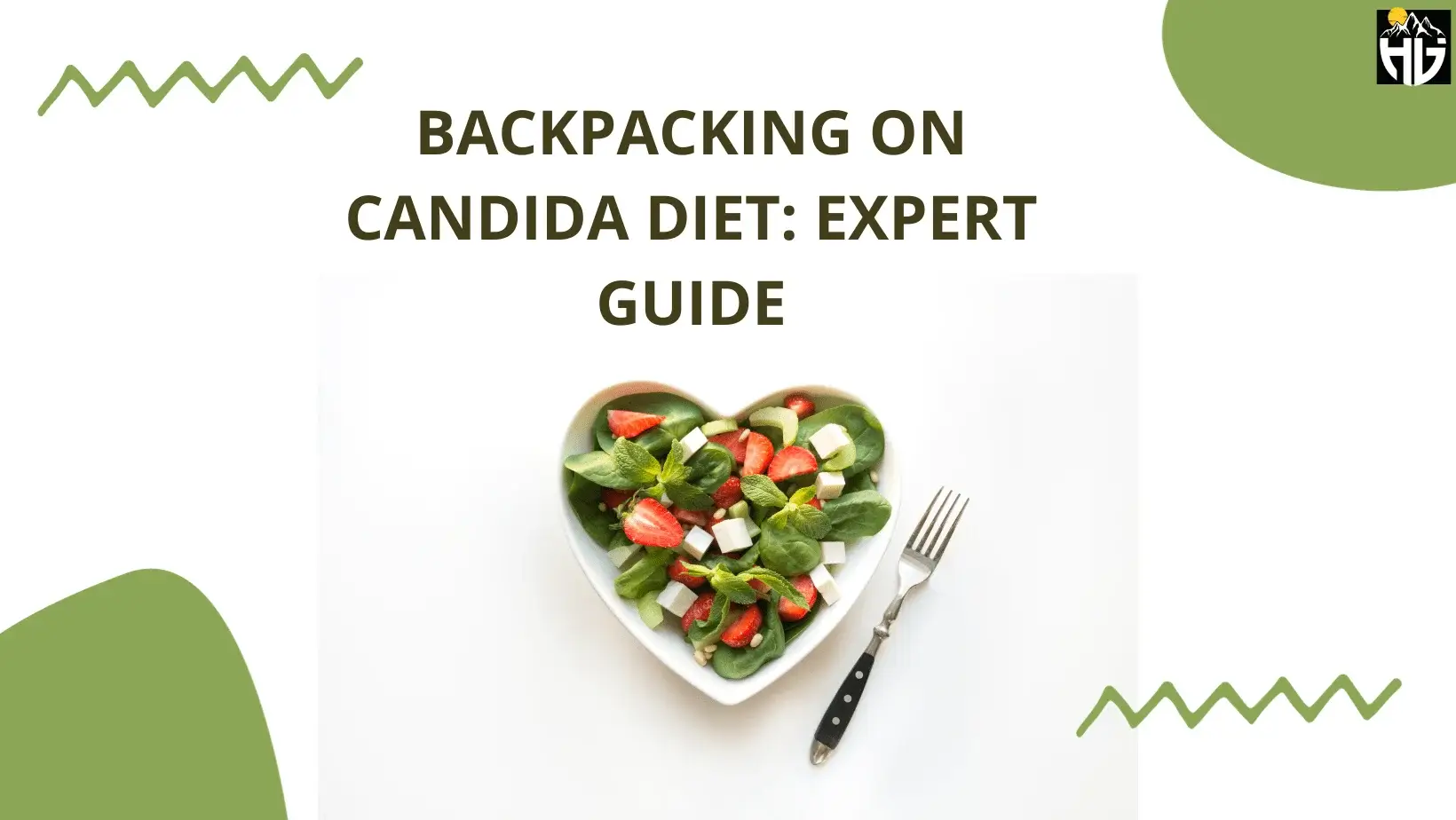8 Tips on Ideal Diet for Hiking Training

It would help if you had a well-balanced diet to keep your body moving during training and to get your body ready for a multi day hiking trip. As you prepare for your next challenge, knowing how important a well-thought-out diet plan is for improving your hiking performance and overall experience is important. This article will detail the most important parts of a hiking diet, such as the nutrients you need, how to stay hydrated, and how to plan your meals to confidently and easily complete your long hikes.
A carefully planned diet for hiking training gives you the energy you need, helps your muscles recover, and keeps your overall health in good shape so you can conquer different terrains and push your limits. Find a balance between carbohydrates, proteins, and fats during your workouts to maintain strength and endurance. This will help you get ready for the ultimate hiking adventure. So, whether you’re a seasoned hiker or just starting, make sure you have a good dieting and workout plan.
What to Eat During Hiking Training Sessions?

Convenient, Energy-Boosting Snacks
To maintain energy levels and avoid fatigue during hiking training sessions, it’s important to consume convenient, energy-boosting snacks. Choose easily digestible, carbohydrate-rich options that provide a quick source of fuel for your leg muscles. A few great options include:
- Energy bars or granola bars made with whole grains, nuts, and dried fruits
- Dried or Fresh fruit, such as bananas, apples, or raisins
- Rice cakes topped with almond butter or peanut butter
- Trail mix containing a combination of nuts, seeds, and dried fruit.
- Whole grain crackers with hummus or cheese
Staying Hydrated Throughout the Strength Training Session
Proper hydration is crucial during hiking training sessions to ensure optimal performance and overall health. Carry a water bottle with you and aim to drink water consistently throughout your workout. As a general guideline, try to consume at least 7-10 ounces of water every 10-20 minutes during your endurance training session. Adjust your water intake based on factors such as climate, workout intensity, and personal preferences.
Balancing Electrolytes During Workouts
Electrolytes, such as sodium, potassium, and magnesium, play a vital role in maintaining fluid balance, muscle function, and preventing dehydration during your hiking training sessions. For a long hike or high intensity exercise, consider replenishing electrolytes with a sports drink or electrolyte-infused water. Alternatively, you can carry electrolyte tablets or gels that can be easily added to your water bottle. Consuming a balanced electrolyte supplement can help prevent cramping, fatigue, and dehydration, ensuring you maintain peak performance during your workout.
Special Dietary Considerations for Hiking Training
What is a Vegan Diet for Hiking Training?
Vegan and vegetarian hikers can successfully follow a hiking training diet by focusing on plant-based sources of protein, carbohydrates, and healthy fats. Some excellent options include:
- Protein: Legumes, tofu, tempeh, seitan, edamame, and plant-based protein powders
- Carbohydrates: Whole grains, fruits, vegetables, and starchy plants like potatoes and sweet potatoes
- Healthy fats: Nuts, seeds, avocados, and plant-based oils

Be mindful of essential nutrients like iron, calcium, vitamin B12, and omega-3 fatty acids, which may be more challenging to obtain from a plant-based diet. Include a variety of nutrient-dense foods and consider supplementation if necessary.
Gluten-Free and Allergy-Friendly Options
For those following a gluten-free diet or managing food allergies, adapting a hiking training diet is still achievable. Choose alternative whole grains like quinoa, brown rice, and gluten-free oats, or opt for naturally gluten-free starchy vegetables like potatoes and sweet potatoes. Be mindful of hidden sources of gluten or allergens in processed foods and always check labels for potential cross-contamination.

For protein sources, focus on lean meats, fish, dairy, or plant-based options that align with your dietary restrictions. When selecting snacks and energy bars, look for allergen-free or gluten-free products that cater to your specific needs.
Personalizing Your Diet for Specific Needs and Preferences
Every individual has unique dietary needs and preferences, which should be taken into account when planning a hiking strength training diet. Consider factors like age, gender, activity level, and any pre-existing health conditions when determining your specific nutritional requirements.

To personalize your diet, pay attention to how your body responds to different foods and adjust your meal plan accordingly. For instance, if you find that certain foods cause bloating or discomfort during your workout, consider alternative options. Keep a food journal to track your meals, snacks, and how you feel during your workouts, making it easier to identify patterns and optimize your diet to suit your needs.
How to Plan Your Diet for Hiking Training?

Energy Needs During Weight Training
As your day hikes go on, giving your body the right energy to keep going and improve your hiking experience is important. The power you need to train depends on your body weight, workout intensity, and metabolic rate, among other things. Some experts also recommend to pack weight on with your backpack to train for a hard and long hike. You could talk to a nutritionist or use an online calculator that considers your activity to determine how many calories you need.
Best Foods to Include in a Hiking Training Diet
For a hard hike, a balanced diet should include a mix of carbs, proteins, and fats. Each nutrient helps your body differently while you’re training:
Carbohydrates: Your core muscles get most of their energy from carbs, which are important for keeping your endurance and stamina up. Choose complex carbs like whole grains, fruits, and vegetables. They give you a steady energy supply and help stabilize your blood sugar levels while training.
Protein: Getting enough protein is important for muscle repair, growth, and keeping your muscles strong in general. Your leg muscles break especially when you are hiking downhill, that is why adding enough protein in your diet is essential. Add lean protein sources, like chicken, fish, beans, and legumes, to your diet to help your muscles and lower your risk of getting hurt while training.
Fats: Healthy fats, like the unsaturated fats in nuts, seeds, and avocados, give you long-lasting energy and help your body work well. Fats shouldn’t be your main energy source when you’re training to hike longer, but they are very important for your overall health and well-being.
Micronutrients to Support Overall Health: As part of a well-rounded hiking training diet, you should also focus on micronutrients like vitamins and minerals to support your health and wellness. Please include a wide range of colorful fruits and vegetables to ensure you get important vitamins like A, C, and E, which help your immune system work, and your cells repair themselves. Also, eating fresh foods high in minerals like calcium, iron, and magnesium will help keep your bones strong, keep your muscles working well, and improve your overall health.
Electrolytes and staying hydrated
Drinking enough water is a key part of a good hiking training diet. If you drink enough water, your body can control its temperature, move nutrients around, and eliminate waste. To stay well-hydrated, try to drink water regularly throughout the day and adjust how much you drink based on how active you are, the weather, and your needs.
Electrolytes like sodium, potassium, and magnesium are just as important as water when it comes to keeping fluid balance and keeping from getting dehydrated. During hiking long distances or hard workouts, replace electrolytes with sports drinks or tablets to keep your muscles working well and prevent cramps.
How to Plan Your Meals for Weekly Endurance Workouts?

Timing Meals Around Workouts
If you plan your meals around your workouts, your body will have the energy it needs to do its best. Eat a healthy meal about two to three hours before your workout. This will give your body enough time to digest and absorb the nutrients. After your workout, especially cardio exercises, eat a meal or snack within one to two hours to help your muscles recover and fill up on energy.
Meal Frequency and How Much Food Should You Eat?
Finding the right balance between how often and how much you eat is important if you want to keep your energy up even when speed hiking. Instead of eating the same three meals daily, you should split your daily calories into 5 or 6 smaller meals or snacks. This can help keep your blood sugar stable, stop you from feeling hungry, and give you a steady stream of energy to fuel your workouts.
The size of your portions will depend on how many calories you need and how hard you train. Focus on filling your plate with complex carbs, lean protein, and healthy fats to keep from eating too much and ensure you’re eating a well-balanced diet. Remember to pay attention to how your body tells you it’s hungry and change the size of your meals to help you reach your training goals.
Adapting Your Diet to Your Training Schedule
As your hiking training improves, you need to change how you eat. Pay attention to how your body responds to different workouts and adjust your meal plan to meet your changing nutritional needs. For example, when your activities are harder or last longer, you may need more carbohydrates to keep you going. On the other hand, your caloric needs may be lower on rest or moderate intensity days, and you should focus on eating nutrient-dense foods that help you recover and stay healthy overall.
What to Eat Before Working out For hiking?

Optimal Food Choices Before Training
Selecting the right Backpacking foods before your hiking training sessions can significantly impact your performance and energy levels. Prioritize consuming a mix of complex carbohydrates and lean protein, as these nutrients provide sustained energy and support muscle function.
Some excellent pre-workout meal options include a bowl of oatmeal with berries and nuts, a whole-grain turkey or chicken sandwich, or a smoothie made with fruits, vegetables, and a scoop of protein powder. Avoid high-fat or overly processed foods, as they can take longer to digest and may lead to discomfort during your workout.
Meal Timing and Portion Sizes
To make the most of your pre-workout nutrition, pay attention to meal timing and portion sizes. Ideally, consume a balanced meal or snack 2-3 hours before your hiking training session to allow for proper digestion and nutrient absorption. This time frame helps prevent feelings of fullness or sluggishness during your workout.
Portion sizes should be tailored to your individual needs, activity level, and training goals. As a general rule, aim for a moderate serving size that provides enough energy for your session without leaving you feeling overly full.
Importance of Hydration
Proper hydration is a critical aspect of pre-workout nutrition. Being well-hydrated ensures your body can efficiently regulate temperature, transport nutrients, and maintain optimal performance during your hiking training.
Aim to drink plenty of water consistently throughout a multi day hike or workout for hiking training, and consume an additional 16-20 ounces of water 1-2 hours before your workout. Remember that individual hydration needs may vary depending on factors such as climate, workout intensity, and personal preferences, so listen to your body and adjust accordingly.
What to Eat After Working Out for Hiking

Foods to Support Muscle Recovery and Repair
Following a hiking training session, it’s crucial to consume foods that promote muscle recovery and repair. Aim for a combination of protein and carbohydrates, as these nutrients work together to support muscle growth and replenish glycogen stores. Some excellent post-workout meal options include:
- Grilled chicken or fish with roasted vegetables and quinoa
- Greek yogurt with berries and a drizzle of honey
- A protein shake blended with fruits, spinach, and almond milk
- Cottage cheese with fresh pineapple or mixed berries
- A whole-grain wrap with turkey, avocado, and mixed greens
Replenishing Lost Nutrients
Intense hiking training sessions can deplete essential nutrients, making it important to replenish them through your post-workout nutrition. In addition to consuming protein and carbohydrates, focus on incorporating foods rich in vitamins and minerals.
Colorful fruits and vegetables, whole grains, and lean proteins are excellent sources of the micronutrients needed to support overall health and recovery. Don’t forget about electrolytes like sodium, potassium, and magnesium, which can be lost through sweat and should be replenished with your post-workout meal or snack.
Rehydrating After Training
Proper rehydration is a vital component of post-workout nutrition. Drinking water after your hiking training session helps to replace fluids lost through sweat, supports nutrient transport, and aids in digestion.
Aim to consume at least 16-20 ounces of water within 1-2 hours of completing your workout. If you’ve been training in hot weather or for an extended duration in even cold weather, you may also consider consuming a sports drink or electrolyte-infused water to help restore your body’s fluid balance and electrolyte levels.
Conclusion
A well-planned diet is essential for hiking training success. Key points to remember are understanding your energy and nutrient requirements, planning meals around workouts, selecting optimal pre- and post-workout nutrition, staying hydrated, and personalizing your diet for specific needs. By prioritizing a balanced diet and hydration, you’ll be better prepared to tackle your training sessions and achieve your hiking goals.
By implementing these strategies and focusing on a balanced, nutrient-dense diet, you’ll be well-equipped to tackle your hiking training sessions and conquer any terrain that lies ahead. Remember that proper nutrition and hydration are essential components of hiking training success, so prioritize them to ensure that you reach your goals and enjoy your time on the trails.
Frequently Asked Questions
Is Hiking Considered As Just A Walk?
Short Answer: NO!
Hiking typically involves walking on trails and uneven terrain in natural settings like forests, mountains, or hills. While both hiking and walking are forms of physical activity, often requires more effort, endurance, and sometimes specialized hiking gear like Hiking Boots and trekking poles, as it can involve navigating steep inclines, challenging terrain, and varying weather conditions. Hiking allows for immersion in nature and often leads to more scenic and remote locations than a regular walk in an urban or suburban environment.

Fahad Sajjad
Founder & CEO
at
Meraki Writes
Meraki Writes is a distinguished content marketing agency committed to delivering exceptional content for businesses and online platforms. With a dedicated team of skilled writers and editors, Meraki Writes consistently produces high-quality articles, ensuring client satisfaction and audience engagement. The same team of professionals is responsible for crafting each insightful and well-researched article on Hike Genius, a reputable hiking niche website.
Recent Articles
8 Tips on Ideal Diet for Hiking TrainingHow Much Should a Sleeping Bag Weigh for BackpackingWhat Does NOBO Mean in HikingHow Much Do Hiking Boots Weigh?How Long Should Hiking Pants Be?




